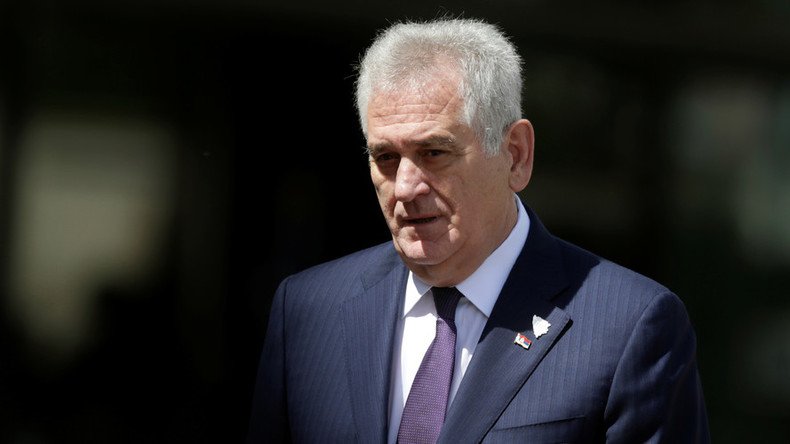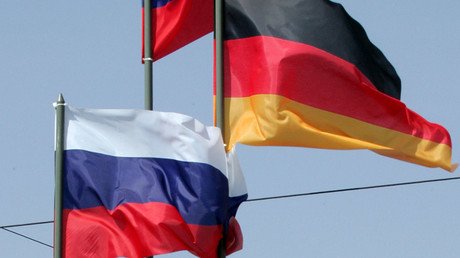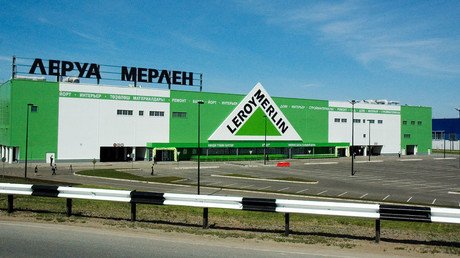Serbian president urges ‘democratic nations’ to question if they ‘obey orders from one leader’

Western countries should take a moment to question whether they are truly a democracy or simply obey demands from one leader, Serbia's president said, referring to nations who say “very bad things” about Russia but fail to understand reality.
Speaking to TASS on Thursday, Serbian President Tomislav Nikolic said he believes “many countries, including those very certain about their own democracy, should stop to think if they really match their own ideas of themselves or always obey orders from one leader.”
“Today many say only very bad things about Russia, about threats allegedly posed by your country, but they do not know what really happens in reality,” he added.
Referring to sanctions imposed by Western countries against Russia, Nikolic said that if Serbia followed in the footsteps of those nations, it would have “ruined everything that we have achieved of years and centuries just for the sole reason somebody ordered us to do so.”
The leader said that “nobody will ever be able to issue any orders to my country,” adding that Serbia has proven it is Russia's “true friend.”
Nikolic said his country is ready to offer Russia products which are not manufactured in the country or are not available due to Western sanctions.
“I see grounds for confirmation of friendship and brotherhood existing between our countries in the economic cooperation,” the Serbian president said.
He noted that while Serbia doesn’t measure friendship in terms of trade turnover volume, the low level with “such a big friend as Russia” is “unnatural.”
“So we should increase the volume of Russian investments to Serbia in this sphere and vice versa,” Nikolic said.
EU sanctions against Russia were initially introduced in 2014, following the coup in Ukraine that resulted in a civil unrest in the east of the country and Crimean decision to join Russian Federation. They targeted Russia’s financial, energy and defense sectors, as well as a number of government officials, businessmen, and public figures.
In response, Moscow imposed an embargo on agricultural produce, food, and raw materials on nations which joined in on the sanctions against Russia. Both sides have repeatedly broadened and extended restrictive measures since then.
Although countries were aiming to teach Moscow a lesson when imposing the sanctions on Russia, a study published by the French research center in international economics, CEPII, found in June that the measures had cost Western countries $60.2 billion from the beginning of the Ukraine conflict until mid-2015.
“We find the overall costs to total $60.2 billion from the beginning of the conflict [in Ukraine in 2014 – Ed.] until mid-2015,” said the center’s report, adding that EU countries bear 76.7 percent of all the trade loss.
Trade between Russia and the EU dropped from US$417.7 billion in 2013 to $235.7 billion in 2015.
Russia is the fourth-largest EU trading partner in the world, after the US, China, and Switzerland. The country is also Europe’s biggest natural gas supplier and one of its biggest oil suppliers.














